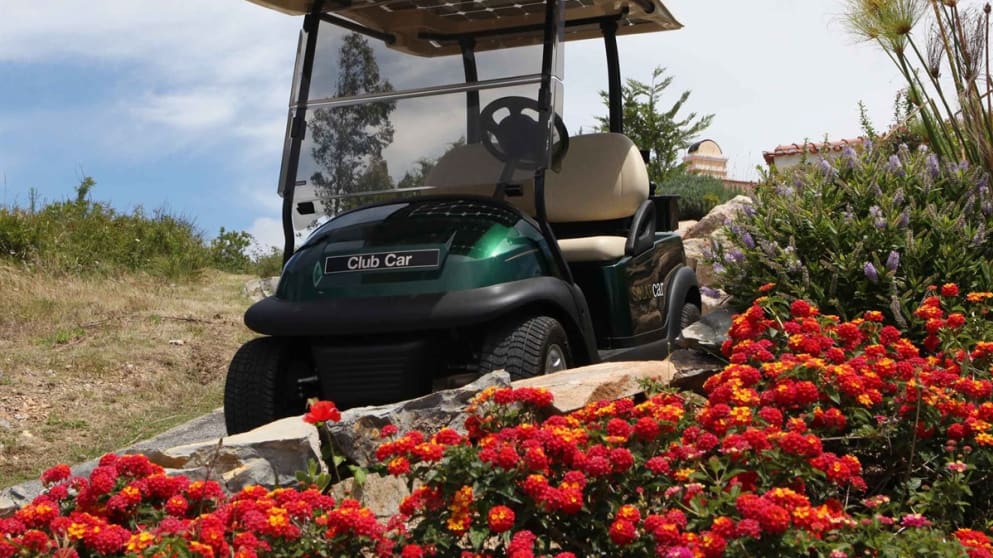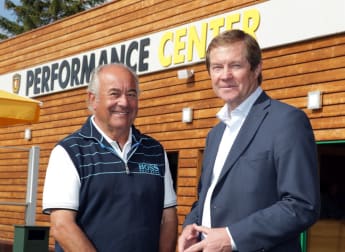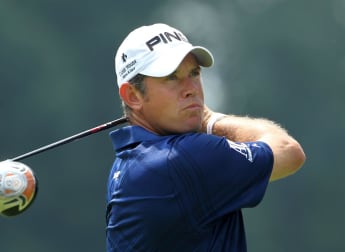Following the measures that were taken in 2010, the KLM Open is taking further steps this year in its pursuit of being the most sustainable sporting event in Europe. Last year the KLM Open was awarded the title "Most Sustainable Golfing Event in Europe" by the Sustainable Golf Index.

The most spectacular result of 2010 was the fact that the tournament was run on green energy. Thanks to an investment made by network administrator Liander, which included electricity cables being laid to the far reaches of the course, the diesel generators that are normally used at such events could be replaced by a cleaner energy supply.
This year too, green energy is being used for the four-day golfing event, which is being held at the beautiful, wooded Hilversum Golf Club. The electricity is supplied by Eneco Windstroom® and is completely generated by wind turbines in the Netherlands.
In addition to the green power supply, numerous other measures have also been taken to make the tournament more sustainable.
The ticket system has been digitalised. Visitors and invitees will have their admission tickets sent to them digitally. The barcode that hangs on each ticket can be scanned from the telephone and therefore does not need to be printed.
Van Gansewinkel are supplying 70 rubbish bins for the course; these should improve the separation of waste relative to last year. Only well-separated waste can be recycled. They are also setting up an "eco street" on the KLM Open terrain where the waste (plastic, paper, glass and residual waste) will be compacted separately. This ensures the separation of the waste at the source and results in less waste transportation being required.
Meanwhile, the waste separation facilities for the suppliers of the KLM Open have been significantly improved compared to last year.
All of the food that is served by Maison van den Boer at the KLM Open is 80% organic and chosen based on seasonal considerations. The food is produced with respect for nature without chemical herbicides, pesticides or fertilisers.
This year, for the first time, Maison van den Boer will also offer organic soft drinks such as Bionade, organic apple and orange juices. In addition, the plates are made of palm leaves, the cutlery is made of wood and the serviettes and cups are made of sustainable materials. In short, all of these materials are bio-degradable.
On the terrain, the golf carts run on electricity that is generated from solar energy. Solar panels have been installed on the roofs of the carts which directly charge the carts.
Throughout the tournament week, the players and members of the organisation are transported in green-label BMWs. These are the BMWs that are among the most energy-efficient in their class and use less fuel.
Eneco is installing wind turbines that charge golf carts to demonstrate how energy from the wind can be used.
The Hilversum Golf Club holds a GEO certificate (Golf Environmental Organisation). This means that the club fulfils strict environmental requirements and has a sustainable operational management policy; they do not use harmful herbicides and pesticides, they use water efficiently and they conserve the flora and fauna.
The air travel that brings the players and organisers to the KLM Open is compensated for by the CO2Zero service from KLM, while the CO2 emissions calculation for the KLM Open is performed by Ecofys.
An important point of special interest for the tournament this year is communication with the visitor. In cooperation with the Wereld Natuur Fonds (the Dutch branch of the World Wide Fund for Nature (WWF)), the KLM Open would like to let its visitors directly see how everyone can contribute in his or her own way to a viable future for humans and nature by way of the Wereld Natuur Fonds campaign, "Pass the earth along".
The visitors to the Open can measure their own ecological footprints in the KLM Open Village and learn about the consequences for the earth if everyone in the world would have that same footprint.
Visitors are then encouraged and taught how to separate waste in the correct manner. Only well-separated waste can be recycled.
Using a bicycle that is connected to LED and incandescent lamps, the visitors gain insight into how much energy they can save with LED lamps. And they can receive advice about saving energy and sustainable energy sources.
Spread out over the golf course itself, visitors will see tips about how they can contribute to nature conservation in their daily lives. For example, by choosing responsible foods, sustainable transportation and products that combat deforestation.
Just like last year, the CO2 emissions of the event will be measured. In the areas where the emissions cannot yet be reduced, they are compensated for. The emissions calculation yields an amount of money that is invested in an energy project in a developing country. The partners of the tournament, KLM, ABN AMRO and Deloitte, account for this investment.
This year the chosen project is the Landfill Gas Project in Turkey. With this project, the decomposition of biological waste is used to generate energy in the form of gas. In the vicinity of the capital of Turkey, Ankara, the waste from millions of area inhabitants is collected. The project aims for "zero waste", where all of the waste is converted to gas that produces clean energy for the inhabitants in the area. The project not only produces clean energy, but it also creates jobs, cleaner air without odours and the restoration of old waste dumping sites into residential areas. The Landfill Gas Project bears the Gold Standard quality mark*.
- Gold Standard is the strictest quality mark in the field of CO2 compensation. The quality mark was established in 2002. It guarantees direct investment in sustainable energy projects, usually in developing countries where the people would otherwise not have access to energy. And these investment contributions additionally guarantee the Gold Standard projects. In other words, without these investments in the climate, these projects would not exist.





